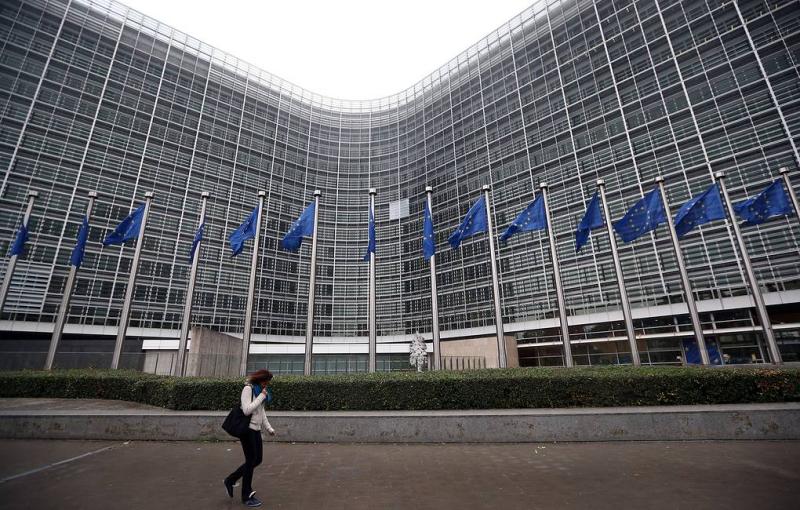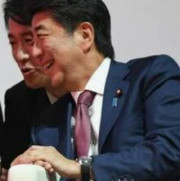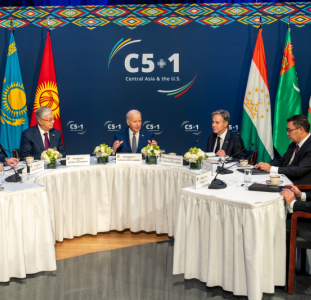
© Carl Court/Getty Images/TASS
Top stories from the Russian press on Monday, February 27th, prepared by TASS
The West imposes new restrictions on Moscow, the CIA suspects China of supplying drones to Russia, and the Ukraine conflict may have ramifications for Transnistria. These stories topped Monday’s newspaper headlines across Russia.
Izvestia: West introduces new package of sanctions against Russia
The United States, Canada, the United Kingdom, Japan, Australia, and New Zealand have all declared new sanctions against Moscow. Despite promises to do so sooner, the EU agreed on a tenth package on the night of February 25. According to experts interviewed by Izvestia, the new package of sanctions is unlikely to have any immediate effect, but its long-term consequences should not be disregarded.
According to the European Council’s announcement on February 25, the new package of sanctions expands the list of goods prohibited for export to Russia, bans transit of European dual-use goods and technologies through Russian territory, introduces restrictions on the import of bitumen and synthetic rubber from Russia, suspends the broadcasting licenses of RT Arabic and Sputnik Arabic, and also sanctions three Russian banks (Alfa-Bank, Tinkoff Bank, and Rosbank). The list included a total of 121 people and legal entities.
Sergey Shein, Research Fellow at the Center for Comprehensive European and International Studies at HSE University pointed out that the package does not include any sanctions against the Russian energy industry. "As a result, the penalties imposed by Brussels are more symbolic," he said.
The new sanctions will have a negative effect more so on certain companies than on the entire Russian economy, particularly those producing dual-use goods, Director of the Center for Business Tendency Studies at Higher School of Economics Georgy Ostapkovich told the newspaper. "They can no longer impose any new penalties because everything has already been implemented. The tenth package will have little effect; its estimated cost is €11 bln, or less than 1% of Russia's GDP," the expert believes. At the same time, according to him, sanctions have a cumulative effect.
"It is difficult to call these sanctions symbolic, as a whole coalition of countries introduced these quite large-scale measures. Because of their volume and because Washington has more opportunities to compel businesses to comply with them, the US sanctions can be seen as the most painful," Director of Programs at the Russian International Affairs Council (RIAC) Ivan Timofeev said.
Vedomosti: China's approach to Ukrainian crisis appeals to Moscow, but not the West
On February 24, the Chinese Foreign Ministry released a 12-point statement outlining its vision for a political settlement to the Ukrainian conflict, stressing respect for all countries' sovereignty and territorial integrity, as well as international law, and rejecting the "Cold War mentality". Western countries and Kiev reacted negatively to China's proposals to resolve the conflict. According to analysts interviewed by Vedomosti, China’s initiative is unlikely to move forward.
Russia's Foreign Ministry stressed that Moscow shares Beijing's vision and that the two countries agreed that any restrictive measures not approved by the UN Security Council are unlawful. On the other hand, NATO Secretary General Jens Stoltenberg, commenting on China’s approach, highlighted Beijing’s lack of credibility.
Vasily Kashin from HSE University told Vedomosti the reaction suggests that the Chinese plan suits Russia and will be rejected by the West and Ukraine. At the same time, the expert believes that the real purpose behind China’s initiative was to communicate to the rest of the world that it has viable peace proposals that can be considered as an alternative to the Western narrative.
According to Yana Leksyutina, a professor at St Petersburg University, China's peace plan is unlikely to lay the groundwork for a genuine resolution of the Ukrainian conflict. Beijing essentially said nothing new, she added. China is now actively promoting itself as a nation that plays a significant role in ensuring global and regional security, but Beijing's plans are not sufficient as a basis for any kind of genuine change in the situation in Ukraine, the expert believes.
Kommersant: Sanctions may further isolate Russian financial system
A year after the outbreak of hostilities in Ukraine, all of Russia’s critically important banks, with the exception of organizations with foreign capital, have in some way been sanctioned. The most recent package of sanctions introduces restrictions on three Russian banks - Alfa-Bank, Tinkoff Bank, and Rosbank. Despite the fact that European regulators gave clients and partners of the sanctioned banks time to settle any issues, lawyers warn that problems may arise, Kommersant writes.
All funds and assets of the sanctioned banks in the EU will be frozen and they will be unable to conduct transactions with union residents, Delcredere lawyer Artyom Kasumyan told the newspaper. However, he clarified that the EU Council has provided an option to release funds from third-party accounts or receive payments on securities until August 26.
While Alfa-Bank and Rosbank have not conducted transactions in euros for a long time, Tinkoff Bank resumed such transfers in December 2022. Now, euro transfers through these banks will no longer be available, AB EMPP partner Mergen Doraev said and noted that any initiated transactions risk getting stuck in intermediary banks.
However, the expert stressed that the new restrictions do not look so bad against the backdrop of a year of sanctions pressure. "The EU discussed the tenth package of sanctions for so long that everyone knew ahead of time who would be sanctioned. Banks had plenty of time to prepare," he explained.
Nezavisimaya Gazeta: CIA suspects China of supplying drones to Russia
Washington has blacklisted several Chinese companies that supposedly assist Russia's military industry, branding China's peace plan as pro-Russian. The dispute between China and the United States continues on in the United Nations Security Council, where the US backed Ukraine, while China’s representative urged Russia and Ukraine to begin talks without preconditions. Meanwhile, the G7 threatened China, North Korea, and Iran with severe repercussions if they supported Russia. According to experts interviewed by Nezavisimaya Gazeta, it is possible that China supplies Russia with civilian rather than military drones.
CIA Director William Burns was rather vague about the likelihood of China supplying weapons to Russia, seeing as how Washington wishes to persuade China not to do so. Beijing is allegedly considering providing weapons, but a final decision has not been made, the newspaper writes. At the same time, Ukraine's military intelligence, which the US openly supports, reported that Russia does not currently have Chinese weapons and ammunition.
In turn, China said it does not supply arms to conflict zones or to parties involved in them. China's general stance is represented in its peace plan, which includes "significant concessions to Russia," according to Reuters. The United States and its allies rejected this proposal.
"This is not the first time the US has claimed that China is supplying weapons to Russia. The same statements were made during the first few weeks of the special operation. At the time, China was not supplying Moscow with weapons. The US intended to discredit China. On the other hand, I do not rule out the possibility of China selling civilian drones to Russia. They could be converted by Russia to be used in hostilities," Senior Researcher at HSE University Vasily Kashin told Nezavisimaya Gazeta.
Nezavisimaya Gazeta: Will Ukraine open a second front in Transnistria?
The US announced military assistance to Kiev twice last week, on February 20 and 26, for $460 mln and $2 bln, respectively. Ammunition for artillery and multiple launch rocket systems (MLRS) were mentioned as the first points of this aid to Ukraine's Armed Forces in both cases. Ukraine is constantly searching for more efficient ways to replenish its artillery reserves and seizing the arsenals in Transnistria left over from the Soviet era could be one of these options, Nezavisimaya Gazeta writes. The Russian Ministry of Defense has already issued a warning about a possible military provocation.
At least 22,000 tons of ammunition may be kept in warehouses left over from the Soviet era, experts believe. Half of that ammunition is useless and unsafe to carry, however, the rest can be used in combat.
According to the Russian military, there is a large gathering of Ukrainian personnel and military equipment near the Ukrainian-Transnistrian border. At the same time, Ukrainian President Vladimir Zelensky said Kiev has no such plans, and Chisinau has declared that it will not engage in the escalation of the conflict in the unrecognized Transnistria. However, the escalation of the situation would benefit both the Ukrainian Armed Forces and the pro-Romanian Moldovan officials, as well as NATO, Nezavisimaya Gazeta writes.
Retired Lieutenant General Yuri Netkachev told the newspaper he believes that a conflict on two fronts is very disadvantageous for Kiev and that Transnistria has enough forces to repel a possible assault from the Armed Forces of Ukraine.









